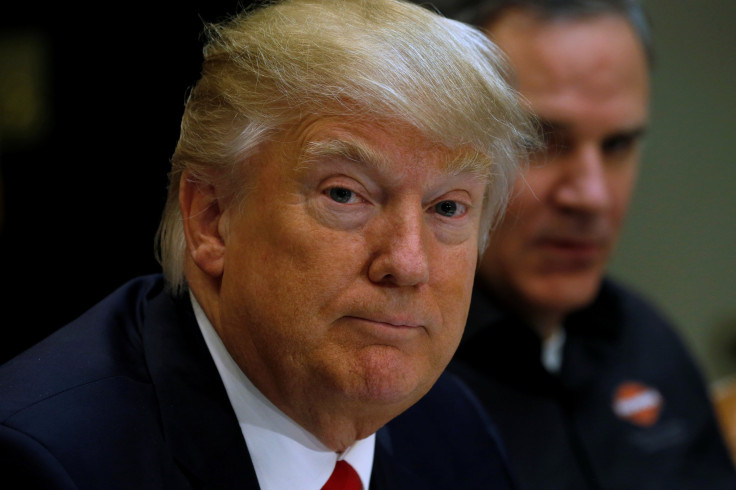NAFTA Under Trump: Trade Agreement Is A 'Catastrophe' For American Jobs, President Says

President Donald Trump said Thursday he had “serious concerns about the North American Free Trade Agreement (NAFTA),” but was indifferent whether the trade agreement between Canada, Mexico and the U.S. should be “changed” or “renegotiated entirely.”
Addressing senators at a meeting in the White House, Trump asserted the trade deal, signed into law by President Bill Clinton in 1994, was a “catastrophe” for Americans jobs and workers. He appointed Commerce Secretary nominee Wilbur Ross to lead a coalition and amend it.
“I would like to speed it up if possible,” said Trump, “You're the folks that can do it, [senators]. So important.”
President Trump: I'd like to speed up NAFTA talks https://t.co/F4glFqyCHS
— MSNBC (@MSNBC) February 2, 2017
Though Trump did not reveal any specifics about what he would like to see in a new trade deal, his trade adviser, Peter Navarro, said in TV interview Friday the administration was particularly focused on strengthening the deal’s “rules of origin” provision, where a certain amount of parts making up product had be manufactured in one of the three countries. Under NAFTA, 62.5 percent of the parts in cars was required to have come from the countries.
Trump said he wants to implement a 35 percent tax on Ford cars made in Mexico and sold in the U.S.
Navarro said raising that percentage could result in bringing more jobs to the U.S. because many companies that make auto parts are located in the country. Navarro added he would like to implement a border tax, citing how countries like Germany have put one on American goods, making them more expensive and subsequently far less competitive.
NAFTA virtually eliminated all tariffs among the three North American nations, giving Mexico somewhat of an advantage since it costs less to manufacture products there. Trump called Nafta a one-sided deal that favored Mexico. He claimed the U.S. has a $60 billion trade deficit with its southern neighbor.
5 ways Trump could improve NAFTA: https://t.co/kVlwa55IkJ pic.twitter.com/BIFotxzkmX
— Forbes (@Forbes) January 24, 2017
Roughly 800,000 American jobs were lost to Mexico between 1997 and 2013, Robert Scott, a senior member of The Economic Policy Institute, told CNN Money Oct. 4.
Trump’s comments Thursday morning came a day after Mexican President Enrique Peña Nieto imposed a 90- day period to consult Mexican businesses about whether they wanted to keep the trade deal in tact. Some Mexican industries, like the agrarian sector, were negatively affected by NAFTA. It benefitted farmers of heavily subsidized crops in the U.S. like corn.
“At the end of the 90 days, the negotiation will properly open to update our free trade agreement,” said, Peña Nieto in a press conference in Mexico City Wednesday where he urged Mexicans to buy products made domestically.
© Copyright IBTimes 2024. All rights reserved.






















